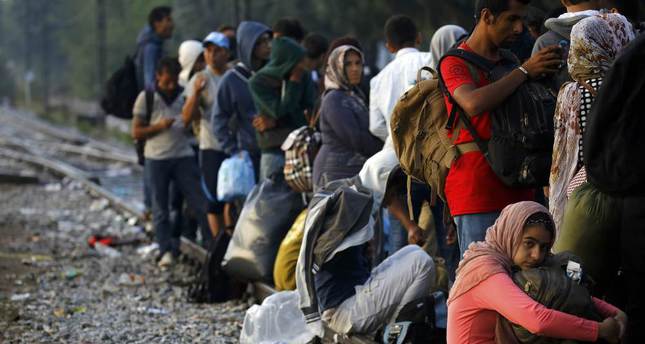
By Areej Zaher*
War and violence affected all, especially women and children. Whether it was internal, cross-border conflicts, religious or political, civilians will be caught in the firing line. And as a result, women will face life-threatening challenges.
War can bring violence, sexual violence, abandonment, detention, physical injury or even death.
Refugees are not excluded. Women who escaped harsh conditions and constant terror immigrated to neighboring countries like Lebanon, Jordan or Turkey; or some of the European countries which opened their borders widely to mass immigration. They may be found queuing for food parcels or clearing debris from their transit camps.
Many women play proactive role post-conflict in peace-building and social reconstructions. On a daily bases, they show resilience by caring and holding communities together.
Much of the war's impact on women depending on how a woman's personal safety is affected, how well equipped she is to ensure her survival and that of her family. Also, it is often a consequence of what happened to the men of her family.
Since the vast majority of those who disappear or are killed whether participated in the armed conflict or they were innocents, the burden and pain of trying to ascertain their fate and whereabouts fall to their female relatives. When the missing person is the household breadwinner, wives and mothers have to find ways to support the family, often facing a life of poverty, a situation that is exacerbated by the low social status and marginalization they suffer in many societies. Many lack a trade or source of income that would enable them to provide for their dependents.
When considering the impact of war on health, physical injuries come to mind first. But the war also undermines access to food, clean drinking water, adequate shelter, sanitary facilities, and health services; as a consequence, the risk of epidemics and nutritional problems is much higher. Women’s health often suffers in times of armed conflict, in particular, their reproductive health.
Refugee in transit camps may also be a source of health problems for women. Sanitary facilities with insufficient provision for safety and privacy increase the risk of sexual violence. Women may, therefore, prefer not to bathe, making it difficult for them to maintain good levels of health and hygiene.
And speaking of which, we can't go through war's issues without highlighting on sexual violence against women or using sex as a weapon and exploit them taking advantage of their need for shelter, food, health care or recruiting them in some militias like the Islamic State.
Some of "Ezidi" or "Alawite" sects were targeted by Islamic militias to be sold as sex slaves letting them have all kinds of torture and suffering.
Some women were sexually exploited in return for aid by men delivering this aid on behalf of the UN international charities, according to the BBC. Some Syrian women avoid distribution centers as a result of the widespread of these exploitations, or so other people don't assume they are offering their bodies in exchange for aid. Humanitarian assistance was being exchanged for sex in various governorates in Syria, according to the UNFPA. Men in power were targeting woman and girls without a male protector. in 2015, the IRC has reported sexual violence took place in Dara'a and Quneitra when women were accessing the distribution of humanitarian aid. Unfortunately, these exploitations were ignored because the UN refugee agency can't have access to war zones in parts of the country.
Women in transit camps in the neighboring counties who fled the violence thinking they might have a better life had their share of abuses. Their fear has transited from armed conflicts they were caught in the middle, to abusive men in power, to even family members. Minors marriage was one of the bad impacts on refugee girls, their parents would have them married to save their honor and left their financial burden upon their shoulders. However, some of these brides were sold temporarily to old rich men of the hosting countries. Poverty, ignorance, and governments were to blame for destroying these young girls lives.
The Syrian war put new obstacles on women, forcing them to face extreme levels of violence including war rape, or honor killings. Nonetheless, Syrian woman still one of the most fundamental foundations of this country, struggling for their roles as caregivers, supporters, and activists, so the international community must punish whoever was responsible for these abuses on women, and the Syrian government along with humanitarian organizations and hosting refugees countries, must collaborate to come to put an end to this long-lasting continuous war.
*Areej Zaher is a Syrian writer based in Lattakia.





